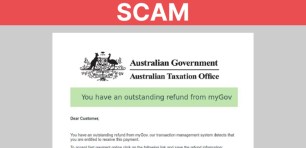
Small businesses are spending more than $1 million in legal fees to challenge decisions handed down by the Australian Taxation Office (ATO), but an official reimbursement program offers “insufficient certainty” over what costs are actually covered, according to a new review by the tax office watchdog.
On Monday, Inspector-General of Taxation and Taxation Ombudsman (IGTO) Karen Payne handed down her report on the Small Business Litigation Program, a scheme that provides financial backup to small businesses which contest decisions made by the tax office in the Administrative Appeals Tribunal (AAT).
Launched in 2019, the program recognises the significant power imbalance between the ATO, both in terms of funding and legal representation, compared to the small business challengers, which may require costly legal representation to effectively make their case.
The ATO is capable of attaining legal representation at government rates, which may be significantly lower than the cost of representation in the private sector, the report found.
Additionally, with the onus of proof on the litigant, small businesses are required to complete significant legal legwork to present and verify a compelling case.
About $29.6 million in taxpayer funding has gone towards the scheme, and 65 small business litigants have been reimbursed through the program since 2019.
But the scheme is not without its detractors, with some small businesses and their lawyers claiming they have been left out of pocket.
The IGTO has heard five complaints from small businesses and their representatives, claiming “substantial uncertainty” around “the ATO’s funding methodology and the resulting unfunded costs and out-of-pocket expenses for taxpayers and/or their representatives”.
In one instance, a complainant’s legal representatives claimed costs would exceed $1 million, with fees in the vicinity of $500,000 estimated in two other cases.
“When they were putting forward the measure, they were costing it to be in the vicinity of $10,000 per matter,” Payne told SmartCompany on Monday.
“And that’s a very different number from the half a million dollars to a million dollars that might be the experience.”
Legal fee discrepancies lead to complaints
Small businesses bearing those heavy financial burdens may not have their claim fully reimbursed due to confusion over what is actually covered, the report said.
“In the IGTO’s view, greater up-front clarity would have minimised the risk and reduced the scope of disputation” in the cases analysed, it added.
Further, the “risks to the efficient and effective delivery of the Program can be mitigated by providing sufficient up-front certainty regarding the ATO’s requirements”.
The IGTO also heard concerns the ATO tried to ‘cap’ the reimbursement offered to small business litigants, without clearly explaining why.
In two of the disputes now completed by the IGTO, “concerns were expressed that the ATO had attempted to cap the funding to levels below that necessary to run their matter,” Payne said in a statement.
“They had calculated reimbursements on a basis which the small business taxpayers had not been made aware of when entering the arrangement.”
Again, additional legal probing only contributed to further blowouts, Payne added.
“The ATO had sent numerous emails to the taxpayers’ legal representatives questioning the bills which imposed considerable administration and unbillable time in responding to them and detracted from case preparation.”
Four recommendations for ATO
As a result of its review, the IGTO has levelled four recommendations to the ATO.
The first is to more clearly define the type and scope of costs covered by the program, how they will be calculated, and which documents are required to verify a small business’ claims.
The ATO should consult with the small business community and the Australian Small Business and Family Enterprise Ombudsman “to ensure that they have a common understanding of the ATO’s material and, if not, for the ATO to amend the material to achieve that understanding”.
The tax office should consider extra steps to make applicants adequately aware of the fees being charged by their legal representatives and their likelihood to be reimbursed.
Finally, the ATO should update its process for handling supporting documentation.
If enacted, those recommendations are slated to provide $700,000 in savings each year through lawyers’ fees and salary.
“Implementation of the recommendations will improve the fairness of the existing Program’s administration and better realise its aim: to level the playing field for unrepresented small businesses who challenge the ATO’s decision” in the AAT, Payne said.
Without explicitly agreeing to the recommendations, the ATO said it “intends to consult with stakeholders, including with IGTO, on the administration of the program going forward.
“The ATO remains committed to supporting unrepresented small business litigants in tax disputes in the AAT or its replacement.”
Speaking to SmartCompany, an ATO spokesperson said observations included in the IGTO report “stem from a small number of complaints.”
However, the IGTO’s recommendations “will inform any changes to the program and the IGTO will be consulted as a key stakeholder.”
Handpicked for you

ATO issues fresh scam warning as fake myGov SMS and email trick taxpayers



COMMENTS
SmartCompany is committed to hosting lively discussions. Help us keep the conversation useful, interesting and welcoming. We aim to publish comments quickly in the interest of promoting robust conversation, but we’re a small team and we deploy filters to protect against legal risk. Occasionally your comment may be held up while it is being reviewed, but we’re working as fast as we can to keep the conversation rolling.
The SmartCompany comment section is members-only content. Please subscribe to leave a comment.
The SmartCompany comment section is members-only content. Please login to leave a comment.